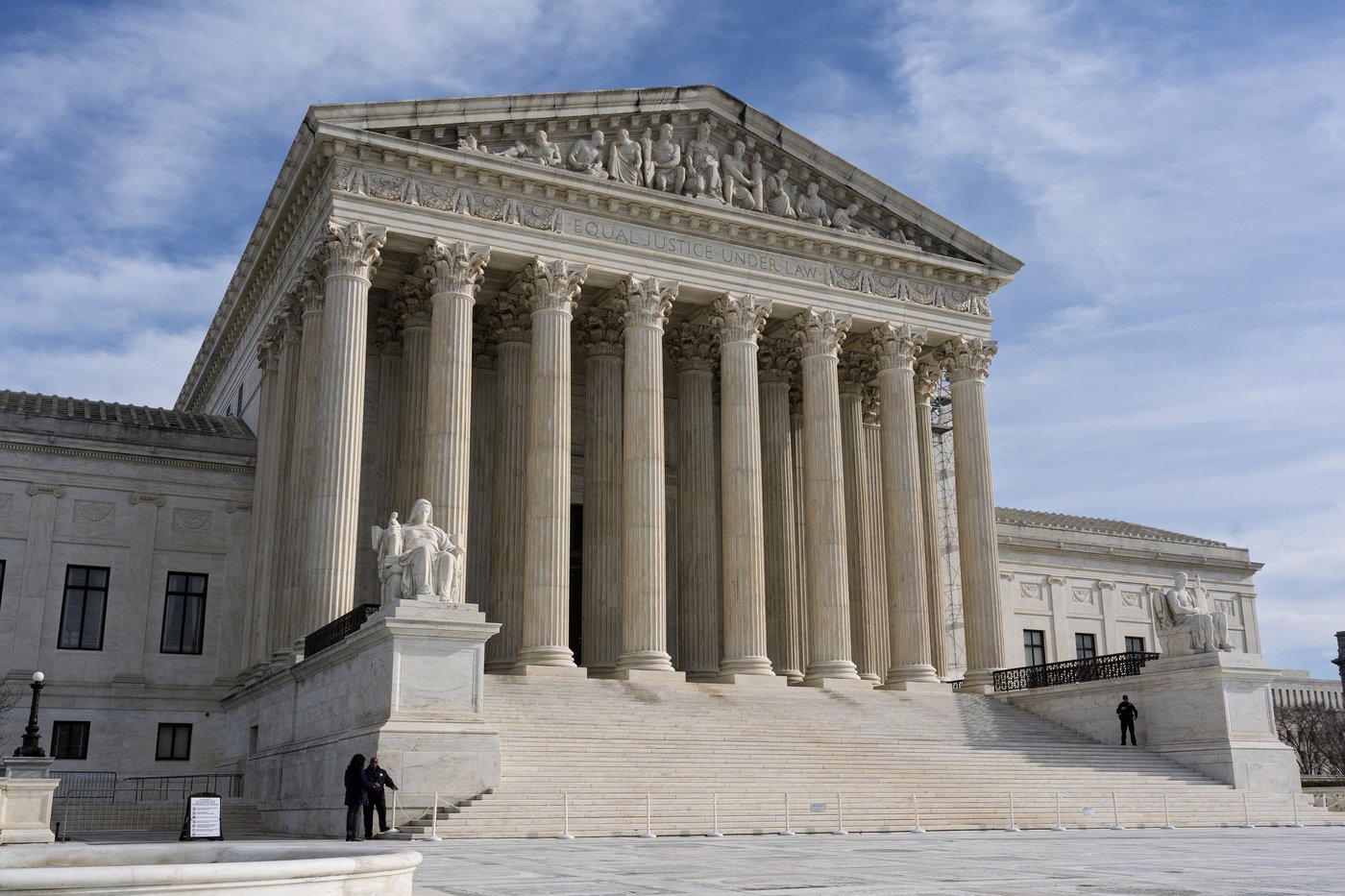
Supreme Court will take up a new case about which school sports teams transgender students can join
WASHINGTON (AP) — The Supreme Court agreed Thursday to hear a case over state restrictions on which school sports teams transgender students can join.
Just two weeks after upholding a ban on gender-affirming care for transgender youth, the justices said they will review lower court rulings in favor of transgender athletes in Idaho and West Virginia. The case will be argued in the fall.
The nationwide battle over the participation of transgender girls on girls sports teams has played out at both the state and federal levels as Republicans have leveraged the issue as a fight for athletic fairness for women and girls.
More than two dozen states have enacted laws barring transgender women and girls from participating in certain sports competitions. Some policies have been blocked in court.
At the federal level, the Trump administration has filed lawsuits and launched investigations over state and school policies that have allowed transgender athletes to compete freely. This week, the University of Pennsylvania modified a trio of school records set by transgender swimmer Lia Thomas and said it would apologize to female athletes “disadvantaged” by her participation on the women’s swimming team, part of a resolution of a federal civil rights case.
Separately, Senate Democrats in March blocked a Republican push for a national ban.
Republican President Donald Trump also has acted aggressively in other areas involving transgender people, including removing transgender troops from military service. In May, the Supreme Court allowed the ouster of transgender service members to proceed, reversing lower courts that had blocked it.
A recent poll by The Associated Press-NORC Center for Public Affairs Research found that about 7 in 10 U.S. adults think transgender female athletes should not be allowed to participate in girls and women’s sports at the high school, college or professional level. That view was shared by about 9 in 10 Republicans and roughly half of Democrats.
West Virginia is appealing a lower-court ruling that found the ban violates the rights of Becky Pepper-Jackson, who has been taking puberty-blocking medication and has publicly identified as a girl since she was in the third grade. Pepper-Jackson sued the state when she in was middle school because she wanted to compete on the cross country and track teams.
This past school year, Pepper-Jackson qualified for the West Virginia girls high school state track meet, finishing third in the discus throw and eighth in the shot put in the Class AAA division.
The 4th U.S. Circuit Court of Appeals ruled for Pepper-Jackson in two areas, under the Constitution’s equal protection clause and the landmark federal law known as Title IX that forbids sex discrimination in education.
“It’s a great day, as female athletes in West Virginia will have their voices heard. The people of West Virginia know that it’s unfair to let male athletes compete against women; that’s why we passed this commonsense law preserving women’s sports for women,” state Attorney General John McCuskey said in a statement.
Lawyers for Pepper-Jackson, who had urged the court to reject the appeal, said they stand ready to defend the lower-court rulings.
“Like any other educational program, school athletic programs should be accessible for everyone regardless of their sex or transgender status. Trans kids play sports for the same reasons their peers do–to learn perseverance, dedication, teamwork, and to simply have fun with their friends,” the American Civil Liberties Union’s Joshua Block said in a statement. Lambda Legal, which advocates for LGBTQ rights, also is representing Pepper-Jackson.
Idaho in 2020 became the first state in the nation to ban transgender women and girls from playing on women’s sports teams sponsored by public schools, colleges and universities.
The ACLU and the women’s rights group Legal Voice sued Idaho on behalf of Lindsay Hecox, who hoped to run for Boise State University. A Boise-area athlete who is not transgender also joined the lawsuit because she fears the law could force her to undergo invasive tests to prove her biological sex if someone questions her gender.
The state asked for Supreme Court review after lower courts blocked the state’s ban while the lawsuit continues.
The justices did not act on a third case from Arizona that raises the same issue.
Join the Conversation!
Want to share your thoughts, add context, or connect with others in your community? Create a free account to comment on stories, ask questions, and join meaningful discussions on our new site.













Leave a Reply
You must be logged in to post a comment.